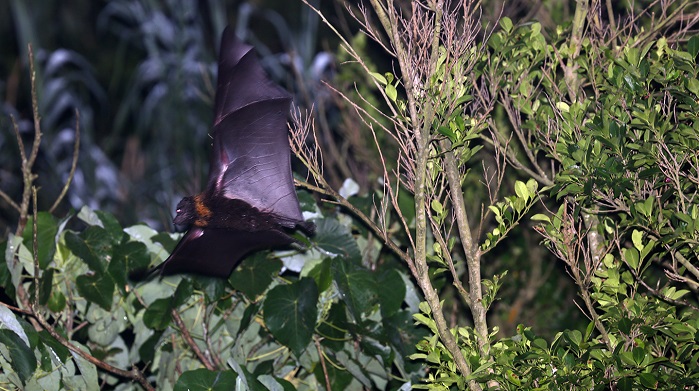
Bats are the only mammals in the world that are capable of flight. There are currently 1,400 known species of bats which can be found in every corner of the world. However, since the start of the Covid-19 pandemic in 2019, some people blamed bats for the virus and the world began to develop “bat-phobia.”
In fact, bats play a very important balancing role in ecosystems everywhere, including their role in pollination, spreading seeds and limiting the number of insects. For example, the Japanese house bat, which is commonly found in Taiwan, can eat an average of a thousand mosquitos in single night. They provide tremendous help in terms of limiting the number of pests and the spread of contagious diseases. If the number of pest-killing bats is reduced the balance of nature is affected. The Formosan flying fox is one of the five sub-species of the Pteropus dasymallus and is the largest bat in Taiwan. This bat has large and round eyes with a extruding snout (earning it the name of flying fox) and has a white or yellow collar around its shoulders.
The earliest record of bats in Taiwan was documented by naturalist Robert Swinhoe in 1862. Through the efforts of many scholars after 1862, the number of known bat species in Taiwan (including Kinmen and Matsu islands) has reached 37, with half being unique Taiwanese or Asian species. However, one of the bat species has been listed as nationally critically endangered (NCR) by the Red List of Terrestrial Mammals of Taiwan, 2017, and once disappeared from the Taiwanese mainland. This species was the Formosan flying fox.
How many Formosan flying foxes are there? Why was the species reduced to near extinction? How can we protect the Formosan flying fox? How do we correctly understand the role the bats play in the ecosystem? This episode invites Dr. Zheng Hsi-Chi, the current Chief Secretary and researcher of the Endemic Species Research Institute and author of the Bats of Taiwan, to talk about the Formosan flying fox and help dispel bat-phobia. (Picture provided by Chief Secretary Zheng Hsi-Chi of the Endemic Species Research Institute)
Podcast on Demand



 中
中